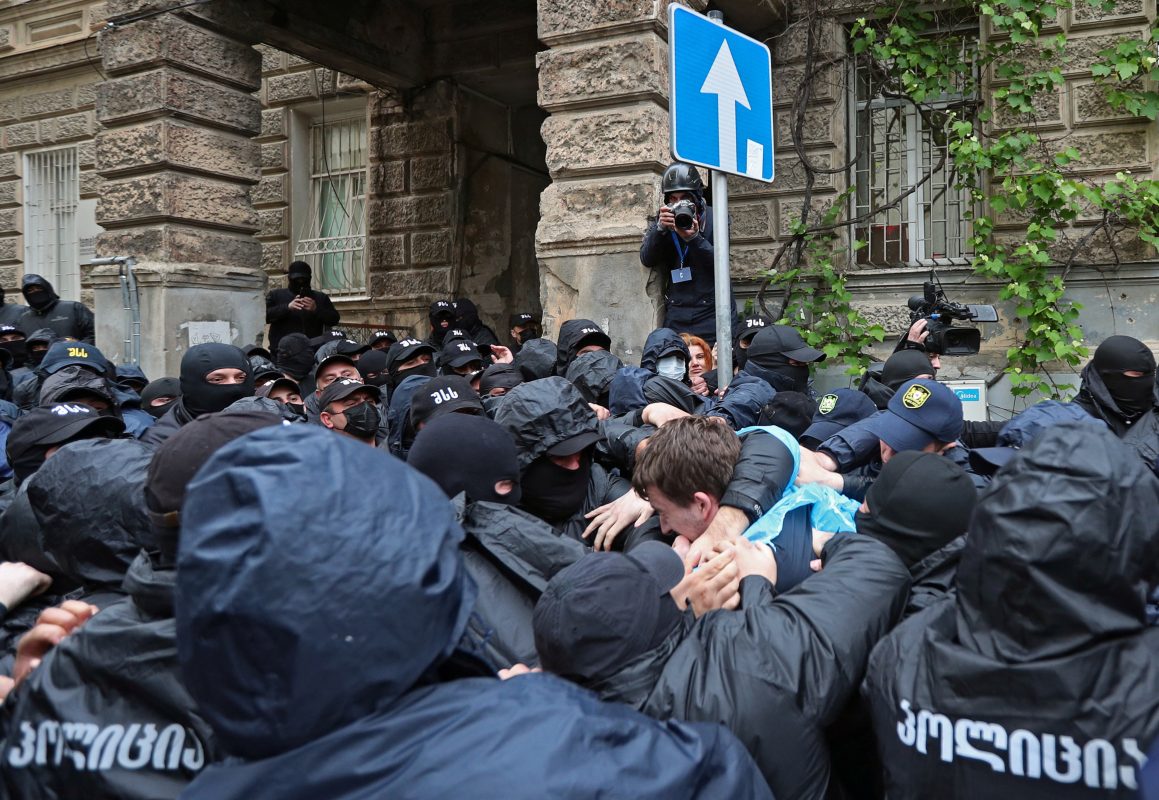TBILISI, (Reuters) – Georgia’s parliament today passed the third and final reading of a “foreign agents” bill, clearing a major hurdle on its way to becoming law.
The draft now goes to President Salome Zourabichvili, who has said she will veto it, but her decision can be overridden by another vote in parliament, controlled by the ruling party and its allies.
Georgian television broadcast scuffles between ruling party and opposition lawmakers, who pushed each other and gesticulated angrily during the debate on the bill, which government critics and Western countries have criticised as authoritarian and Russian-inspired.
Opponents of the bill, seen as a test of whether the South Caucasus country stays on a path towards integration with Europe or pivots back towards Russia, have called for further protests.
The bill passed with 84 members of parliament out of 150 voting in favour.
It would require organisations receiving more than 20% of their funding from abroad to register as agents of foreign influence, imposing onerous disclosure requirements and punitive fines for violations.
Opponents have dubbed the bill “the Russian law”, comparing it to Russian legislation used to target critics of President Vladimir Putin’s Kremlin.
Georgia’s government says the bill is needed to promote transparency, combat “pseudo-liberal values” promoted by foreigners and preserve the country’s sovereignty.
About 1,000 protesters picketed the fortress-like parliament building amid a major police presence during the debate, with water cannon idling nearby. On hearing the bill had passed, they shouted “Slaves!” and “Russians!”.
Demonstrations have been running for weeks and typically peak in the evening, where crowds numbering in the tens of thousands have mounted some of the biggest protests seen in Georgia since it regained independence from Moscow in 1991.
The European Union, which gave Georgia candidate status in December, has repeatedly said the bill will be a barrier to Tbilisi’s further integration with the bloc.
The ruling Georgian Dream party says it wants to join both the EU and NATO, even as it has adopted anti-Western rhetoric in recent months.
Polls show Georgian public opinion is strongly supportive of EU integration, while many Georgians are hostile to Russia over Moscow’s support for the breakaway regions of South Ossetia and Abkhazia.
The United States, Britain, Germany, Italy and France have all urged Georgia to withdraw the bill.
The Kremlin denies any role in inspiring the Georgian bill.
“We see an unveiled intervention in the internal affairs of Georgia from the outside,” Kremlin spokesman Dmitry Peskov said on Tuesday. “This is an internal matter of Georgia, we do not want to interfere there in any way.”
